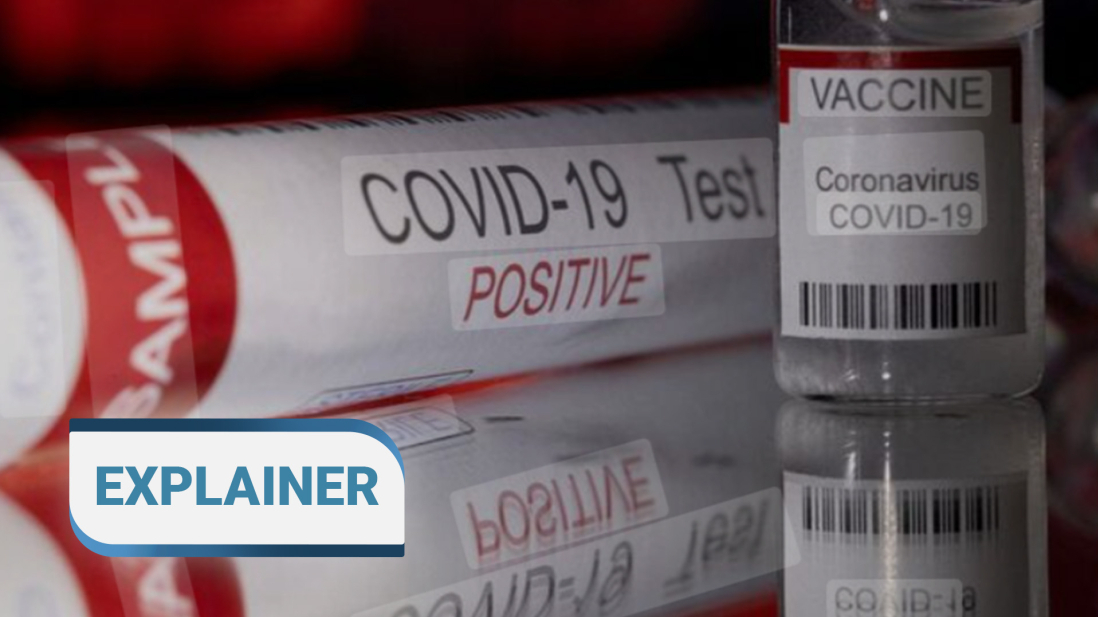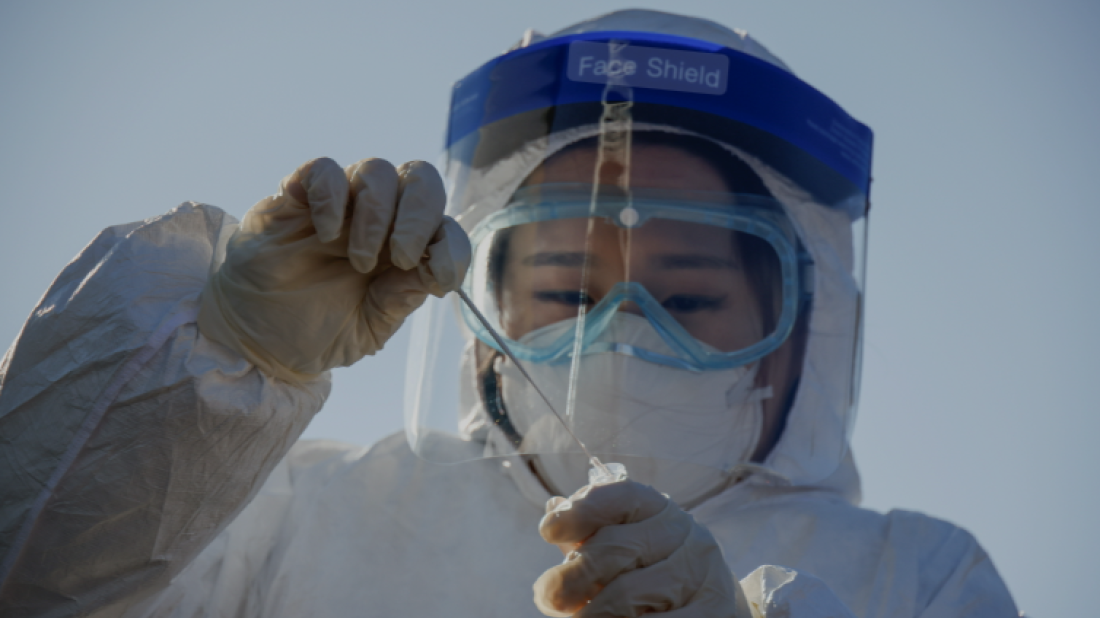The White House: U.S. ground troops ‘not part of plan’ in Iran
The White House says deploying United States ground troops in Iran is not currently part of the military strategy in ...

The COVID-19 pandemic exposed deep flaws in how the world prepares for and responds to global health threats. From overwhelmed hospitals to fragmented international coordination, the crisis revealed that preparedness goes beyond stockpiles. It requires trust, transparency, and global cooperation.
The COVID-19 pandemic was a once-in-a-century global shock that forced the world to confront its vulnerabilities. For decades, scientists and public health experts had warned about the inevitability of a global outbreak, yet when the coronavirus struck, countries scrambled to respond.
The result was widespread disruption with collapsing health systems, economic paralysis, and a crisis of trust in institutions. But in its wake, the pandemic also triggered a global reckoning, a deep reassessment of how prepared we really were, and how we must act differently next time.
“COVID-19 was the most anticipated unexpected event,” said Professor Sheila Jasanoff. “Its arrival exposed the illusion of control and reminded us of the importance of humility in public policy.”
Key lessons learned from COVID-19
The first and most obvious lesson was that no country was fully prepared. Even nations with top scores on the Global Health Security Index, such as the United States and the United Kingdom, faced overwhelmed hospitals, PPE shortages, and public confusion. This showed that preparedness isn’t just about having resources on paper, it’s about governance, trust, and speed of response.
Another major lesson was the importance of public trust and transparent communication. Countries that communicated clearly, acted early, and involved their citizens in the decision-making process often fared better. For example, New Zealand and South Korea rapidly earned public confidence with science-driven policies and consistent messaging.
“Preparedness is not just a checklist, it’s a culture of coordination, ethical leadership, and community involvement,” observed Dr. Stelios Kympouropoulos at the 2023 European Health Tech Summit.
The pandemic also showed that applying a one-size-fits-all approach does not work. Lockdowns, vaccination campaigns, and communication strategies needed to be tailored to the local social and cultural contexts to be effective.
Improvements in planning and coordination
In response to these hard lessons, countries have taken significant steps to improve their planning, coordination, and resilience. Many nations strengthened their public health infrastructure, boosted investments in early warning systems, and created permanent emergency coordination units.
One notable example is the expansion of national Centres for Disease Control (CDCs) across various countries. These institutions, modelled on the U.S. CDC, are now better equipped to detect and respond to emerging threats. Nigeria’s CDC, for instance, used its experience with Lassa fever and Ebola to mount a more coordinated COVID-19 response, incorporating lessons in real-time through its Public Health Emergency Operations Centre (PHEOC) model.
Globally, countries have begun to improve how they work together. The early stages of COVID-19 were marked by fragmented international responses and competition for vaccines and supplies. Today, there is a renewed push for shared responsibility and solidarity.
Key international efforts: WHO pandemic accord and HERA
At the international level, one of the most significant developments is the proposed World Health Organization (WHO) pandemic accord. Still under negotiation, this treaty aims to ensure that in future pandemics, countries will share information quickly, coordinate responses, and guarantee equitable access to vaccines, diagnostics, and treatments. The goal is to avoid the hoarding and fragmentation that characterised much of the early COVID-19 response.
In Europe, the creation of the Health Emergency Preparedness and Response Authority (HERA) is another critical step. HERA was established to anticipate health crises, accelerate the development of vaccines and treatments, and strengthen stockpiles and production capacity. It reflects a more proactive and collective approach, ensuring EU countries are not caught off guard again.
“We now understand that preparedness isn’t a national task, it’s a global imperative,” said a representative from the European Commission. “No one is safe until everyone is safe.”
Beyond health: equity, technology, and trust
COVID-19 also brought forward the importance of equity and inclusion in pandemic planning. Vulnerable groups—those without access to healthcare, the internet, or social protection—suffered the most. Countries are now investing more in digital health tools like telemedicine, but also recognising the risk of widening the digital divide if these tools are not made accessible to all.
Efforts are also being made to bridge the science–policy–society gap. Governments are developing clearer strategies for incorporating scientific advice into policymaking, with more transparency around uncertainties and trade-offs. Public communication is now seen as a core component of preparedness, not an afterthought.
A new mindset for an uncertain future
Perhaps the most profound shift has been a change in mindset. Instead of assuming we can predict every threat, there is growing recognition that we must build flexible, ethical, and inclusive systems that can adapt quickly to uncertainty. Preparedness now includes scenario planning, simulation exercises, and sustained investment, not just during a crisis, but always.

“We can’t prepare for everything—but we can prepare to be better,” said a speaker at the 2023 European Health Tech Summit. “Preparedness is a long-term commitment, not a temporary panic.”
Conclusion: From crisis to resilience
COVID-19 shook the world—but it also inspired change. Countries have learned that preparedness is not a luxury, but a necessity. It requires political will, international cooperation, and societal trust. From the WHO pandemic accord to HERA and national CDCs, important steps have already been taken to ensure we are better equipped for the next health emergency.
Still, there is much to be done. Preparedness must be inclusive, locally grounded, and globally coordinated. It must be informed by science, shaped by ethics, and built on trust. If the lessons of COVID-19 are fully embraced, we may not prevent the next pandemic—but we will face it with greater strength, unity, and resilience.
U.S. President Donald Trump said the U.S. military has enough stockpiled weapons to fight wars "forever"; in a social media post late on Monday. The remarks came hours before conflict in Iran and the Middle East entered its fourth day.
U.S. first lady, Melania Trump chaired a UN Security Council meeting on children and education in conflict on Monday (2 March), a move criticised by Iran as hypocritical following U.S. and Israeli strikes that triggered a UN warning about risks to children.
A torpedo from a U.S. submarine sunk an Iranian warship off the coast of Sri Lanka, U.S. Secretary of Defense, Pete Hegseth told reporters as the Iranian conflcit entered its fifth day on Wednesday.
The U.S. embassy in Riyadh was hit by two drones resulting in a limited fire and some material damage, the kingdom's defence ministry said in a post on X on Tuesday, citing an initial assessment.
Shahid Motahari Sub-Speciality Hospital in northern Tehran and parts of the Golestan Palace were bombed on day two of the U.S.‑Israel strikes. AnewZ Touraj Shiralilou is in Iran's capital city and said that the facility was flattened in an airstrike.
Measles cases across Europe and Central Asia fell sharply in 2025 compared to the previous year but health officials have warned that the risk of fresh outbreaks remains unless vaccination gaps are urgently addressed.
A Florida university has become a new hotspot in a widening U.S. measles outbreak, with health officials confirming multiple infections and hospitalisations.
The World Health Organization has added the Nipah virus to its list of the world’s top 10 priority diseases, alongside COVID-19 and the Zika virus, warning that its epidemic potential highlights the global risk posed by fast-spreading outbreaks.
Belgian authorities are examining suspected cases of infants falling ill after consuming recalled Nestle baby formula, amid warnings that confirmed infections may be underestimated due to limited testing requirements.
Two Nipah infections involving health workers in India have triggered heightened screening across Southeast Asia as authorities move to prevent the high fatality virus from spreading beyond the country.
You can download the AnewZ application from Play Store and the App Store.

What is your opinion on this topic?
Leave the first comment